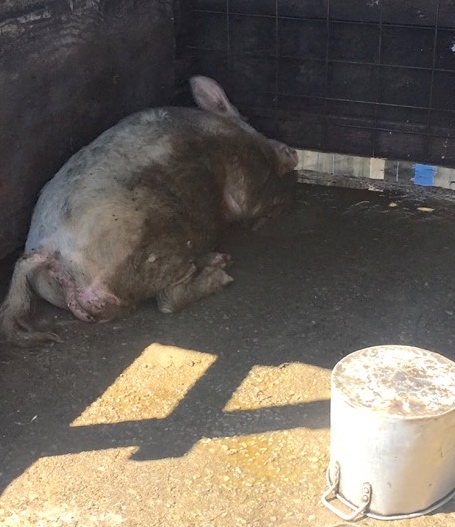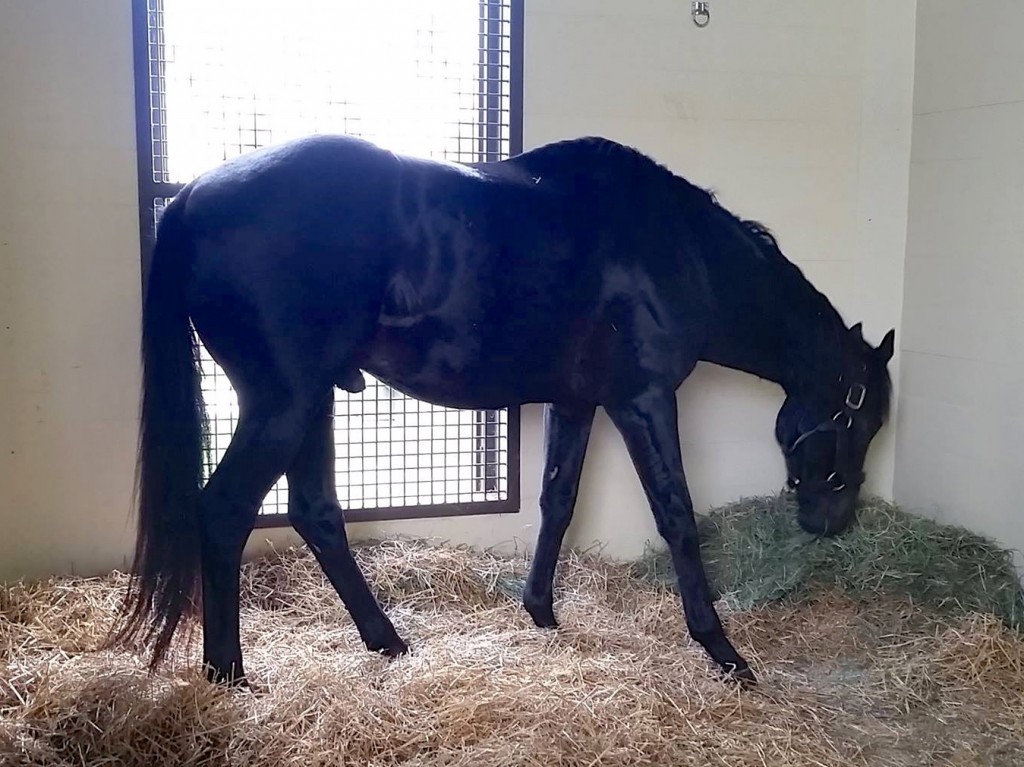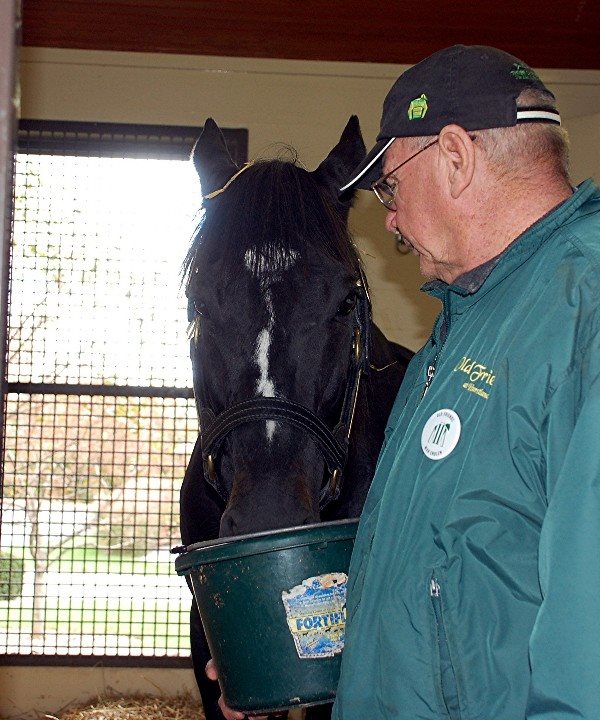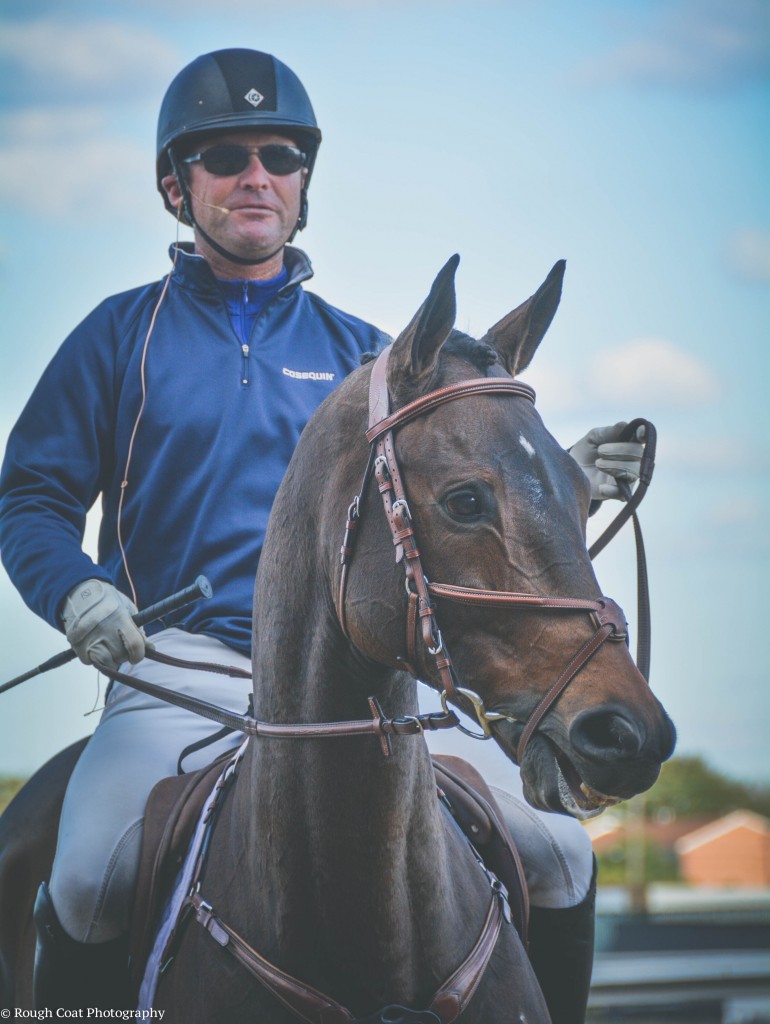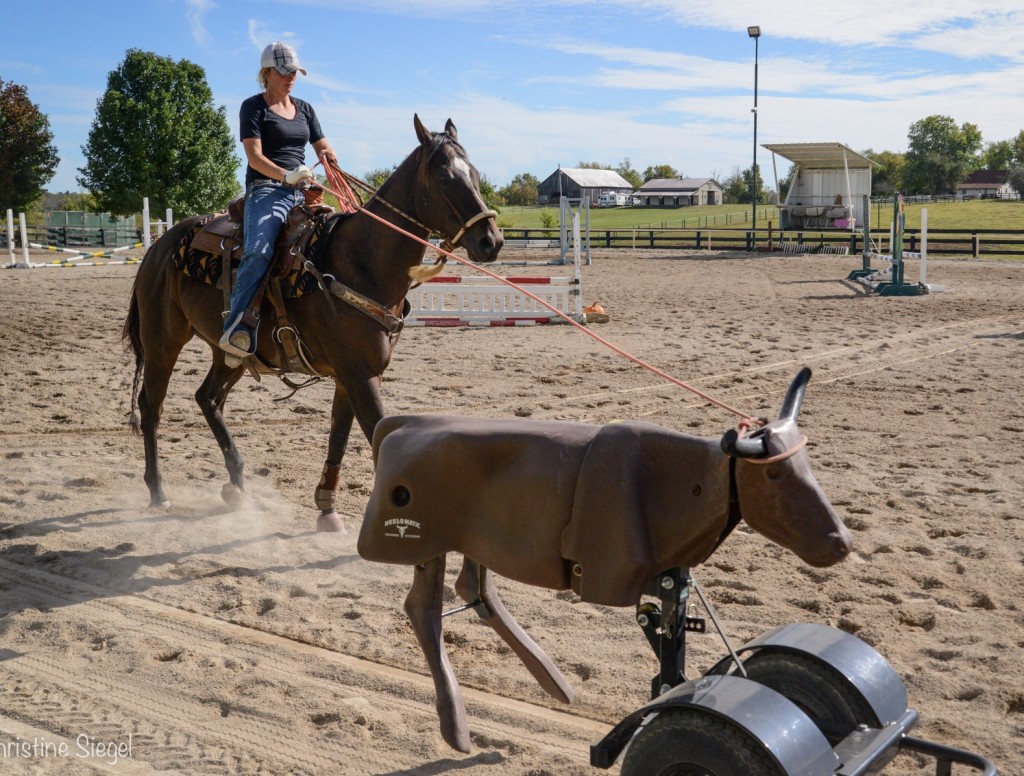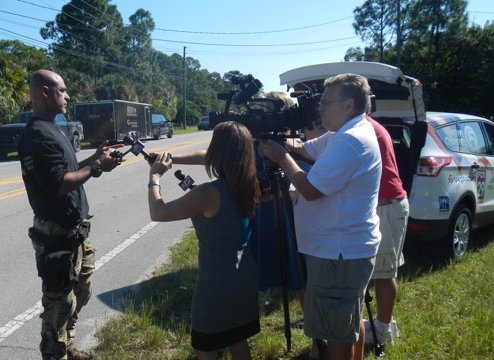
Richard “Kudo” Couto, founder of Animal Rescue Network, helped close down slaughterhouses in Palm Beach County where show horses were reportedly among the casualties.
Under the cloak of deep secrecy, approximately 15 horses per week were savagely butchered in illegal slaughterhouses operating a short distance from the hallowed Wellington, Fla. horse show grounds, according to Richard “Kudo” Couto, an animal rights activist who triggered a raid on three slaughterhouses this week.
Couto, the founder of the Animal Recovery Mission, says that one of the many grisly details uncovered in a six-month investigation, which on Tuesday, led to the “largest law enforcement tactical strike” of alleged perpetrators of extreme animal cruelty, is evidence that show horses were being slaughtered among the cows, chickens, goats, pigs and other horses, including Thoroughbreds and Quarter Horses.
“We discovered during a deep investigation that illegal slaughterhouses were getting their horses from the town of Wellington, and that those slaughtered included ex-show horses,” Couto says. “This is the first time we now know that, just like in the Thoroughbred industry, that show horses are also going to slaughter. The show horse community has often said that because their horses are worth so much money that they’re not going to slaughter.
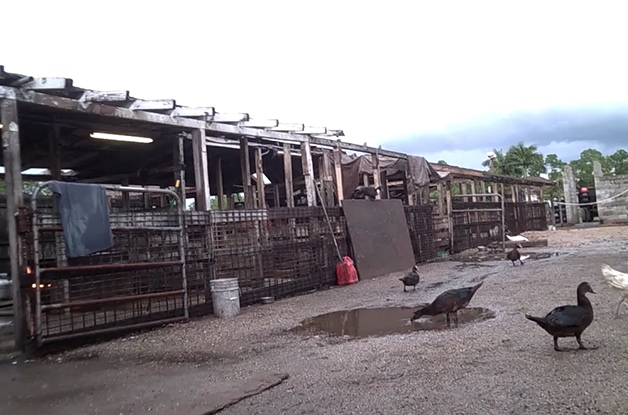
Rancho Garcia was one of three alleged illegal slaughterhouses in Florida raided by law enforcement this week.
But our investigation shows that they do, and if show horses had tattoos and IDs like racehorses, I believe we’d see many show horses are winding up slaughtered.”
Couto made his conclusion following an undercover, six-month investigation that led to the arrest of six men Tuesday by a slew of law enforcement, including nine SWAT teams, special weapons units, a bomb squad, some 150 uniformed police officers, as well as representatives of the USDA and the EPA and multiple departments of the Florida Department of Agriculture, according to Couto and numerous news media reports.
The tactical strike was organized by the Palm Beach Sheriff’s Department and the Palm Beach State Attorney’s Office, who worked with lightning speed to raid three slaughterhouses after they were presented with six month’s worth of video and interviews recorded by Couto and the Animal Recovery Network.
A raid was made on G.A. Paso Fino and also on Rancho Garcia in the Palm Beach area and on the Medina Farm in Loxahatchee, Fla., according to Couto and numerous media reports. Arrested in the sting were Edeger Bica, 83; Jorge Luis Garcia, 48; Rafael Ramirez, 50; Jose Reyes, 38; Rathiban Monieram, 58, and Edgar Bica, 49, according to the Palm Beach Post. Bica, Garcia and Ramierz made their bail and were released.
The men were all charged with animal cruelty resulting in death, and with the illegal killing of horses and sale of horsemeat, which is a third-degree felony in the state of Florida, Couto says. He adds that he expects further charges to be brought following law enforcement review of extensive undercover video taken by the Animal Recovery Mission, and which, he says, depicts extreme cruelty and slaughter.
“The way these animals, including horses, are slaughtered rarely involves an attempt to stun them unconscious first,” Couto says. “They will go up to an animal like a horse or a cow and plunge a foot-long blade through the chest; I saw one cow take 20 minutes to die. Some 750 animals were rescued from the three slaughterhouses, 300 of which were seized by Couto and destined to be placed at a newly established Animal Recovery Mission Sanctuary, he says.
Couto and the Animal Recovery Mission, acting on a tip received six months ago, began investigating the three slaughterhouses through a series of techniques that involved the use of long-distance surveillance, flying drones overhead, nighttime surveillance, and ultimately infiltrating the slaughterhouses, masquerading as prospective buyers of horsemeat, he says.
The Animal Recovery Mission has investigated illegal slaughterhouses in the Miami-Dade region of Florida for about eight years. This week’s raid was the first of its kind to take place in Palm Beach, he says.
“Two of the farms are in Palm Beach County, one is just a short walk to the Wellington Show Grounds, the horse show capital in the winter, and the other is about three miles down the road,” Couto says, noting that horses were procured via Craigslist and at auctions in the area. “They were getting Thoroughbreds and Quarter Horses from race tracks, and show horses from the show horse community.”

